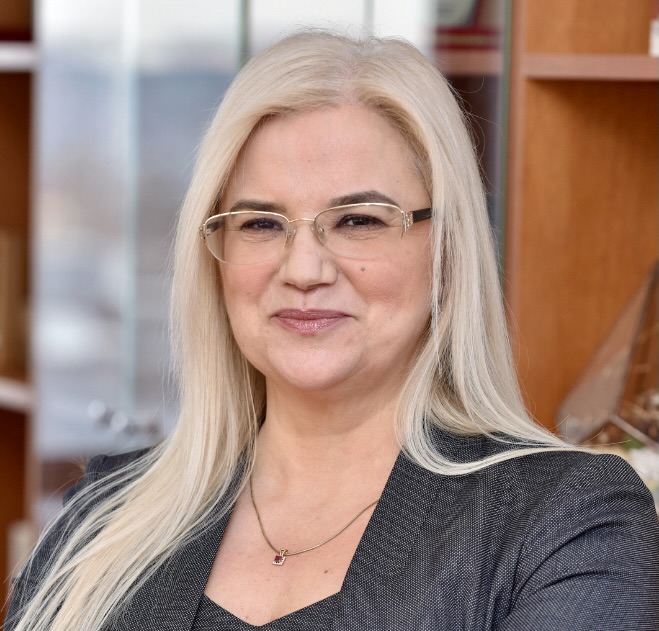Thought Leadership

By Diplomatic Council Member Dr. Alina Bârgăoanu (with Stephan J. Kramer)
From wishful thinking to policy responses
Hybrid threats pose significant challenges to democracy, public trust and national security. Disinformation, in particular, is a key tool in hybrid warfare and a multiplier of other risks, as it seeks to manipulate public opinion, sow discord, and weaken democratic institutions and processes (World Economic Forum, 2024).[i],[ii] It disrupts the integrity of public spaces and public discourse, undermines a shared understanding of reality, thus transforming liberal democracies’ information spaces into their strategic underbelly. Tackling disinformation and other systemic risks endemic to the contemporary information ecosystem requires strategic, high-level, integrated transnational approaches.
Weaponization of the hyper-connected information ecosystem
Hybrid threats combine traditional forms of warfare or conflict with unconventional tactics, such as disinformation, propaganda, influence operations, elections and political interference, weaponization of history and culture, cyberattacks, cyber intelligence, advertising intelligence, malvertising, algorithmic warfare, data and information harvesting, mercenary diplomacy. Information operations in the cognitive area weaponize the hyper-connectivity of the transnational information, communication and persuasion ecosystem, deliberately blurring the lines between war and peace, between covert and overt operations, between legitimate political conversation and diplomatic activity, on the one hand, and disinformation and foreign information operations driven by military and intelligence services of hostile state actors, on the other.
Contemporary disinformation does not happen in a vacuum, but in a new, changing information, communication and persuasion ecosystem that is platform, algorithm, big-data, machine-learning and AI-driven, optimized for reaction-generating and attention-grabbing. This new ecosystem has created tremendous opportunities for democratization, public participation and affordances in terms of producing, accessing and sharing content. At the same time, it created a fertile background for the emergence of a new type of disinformation that, while exploiting old cognitive shortcuts and biases in dealing with information, comes up with new formats, tools, technologies and dominant practices.
Contemporary disinformation and information disorders at large are instances of larger trends of the information ecosystem, among which the most relevant ones are the non-Westernization of the global information sphere and the competition for influence especially in the information, communication and persuasion field. In our understanding, information operations carried out by major non-Western actors (be it influence, propaganda, strategic communication, or disinformation operations) should be analysed and understood against this background, which takes into account hyper-connectivity and a changed information ecosystem as major disruptions of international relations and the established world order.
To make things even more complicated, contemporary disinformation takes place in the context of some tectonic changes that go beyond that information ecosystem itself: socio-economic (increased inequality, aftermath of the global recession and of the COVID-19 pandemic, demographic changes), political (twin crisis of representation and legitimacy), cultural and epistemic (collapse of expert systems, new relations with the territory, decline of trust in traditional institutions, such as families, parties, traditional mass media, the scientific establishment), geopolitical (great power competition, Easternization, challenges to multilateralism and the institutions put in place after WWII).
[i] Report 2024 World Economic Forum (https://www.weforum.org/press/2024/01/global- risks-report-2024- press- release/)
[ii] World Economic Forum. Global Risks 2024: Disinformation tops global risks 2024 as environmental threats intensify. https://www.weforum.org/press/2024/01/global-risks-report-2024-press-release/
Excerpt from the book ‘Europe and the Emerging New Global Order’, co-written by Dr Alina Bârgăoanu, Stephan J. Kramer and 20 other authors. Link to the book.
* Dr. Alina Bârgăoanu, PhD, is a distinguished Romanian scholar specializing in communication. She serves as the Dean of the College of Communication and Public Relations at the National University of Political Studies and Public Administration in Bucharest. Dr. Bârgăoanu is an active member of the “Communication & Health Literacy” Working Group of the European Code Against Cancer and sits on the Advisory Board of the European Digital Media Observatory (EDMO). She also contributes to EDMO’s specialized task forces addressing the war in Ukraine and the 2024 European Parliament Elections.
A Marcin Król Fellow at Visegrad Insight and a visiting fellow at the Minda de Gunzburg Center for European Studies at Harvard University, Dr. Bârgăoanu has played a pivotal role in shaping discussions on misinformation. As a former member of the European Commission’s High-Level Expert Group on Fake News and Online Disinformation (2018), she has offered critical insights into combating online falsehoods. In addition to her academic contributions, Dr. Bârgăoanu is a prominent media commentator and columnist, with a focus on disinformation, anti-Western propaganda, societal resilience, and the interplay between technology, democracy, and the information ecosystem. She is the founder and editor-in-chief of the fact-checking portal Antifake.ro.
